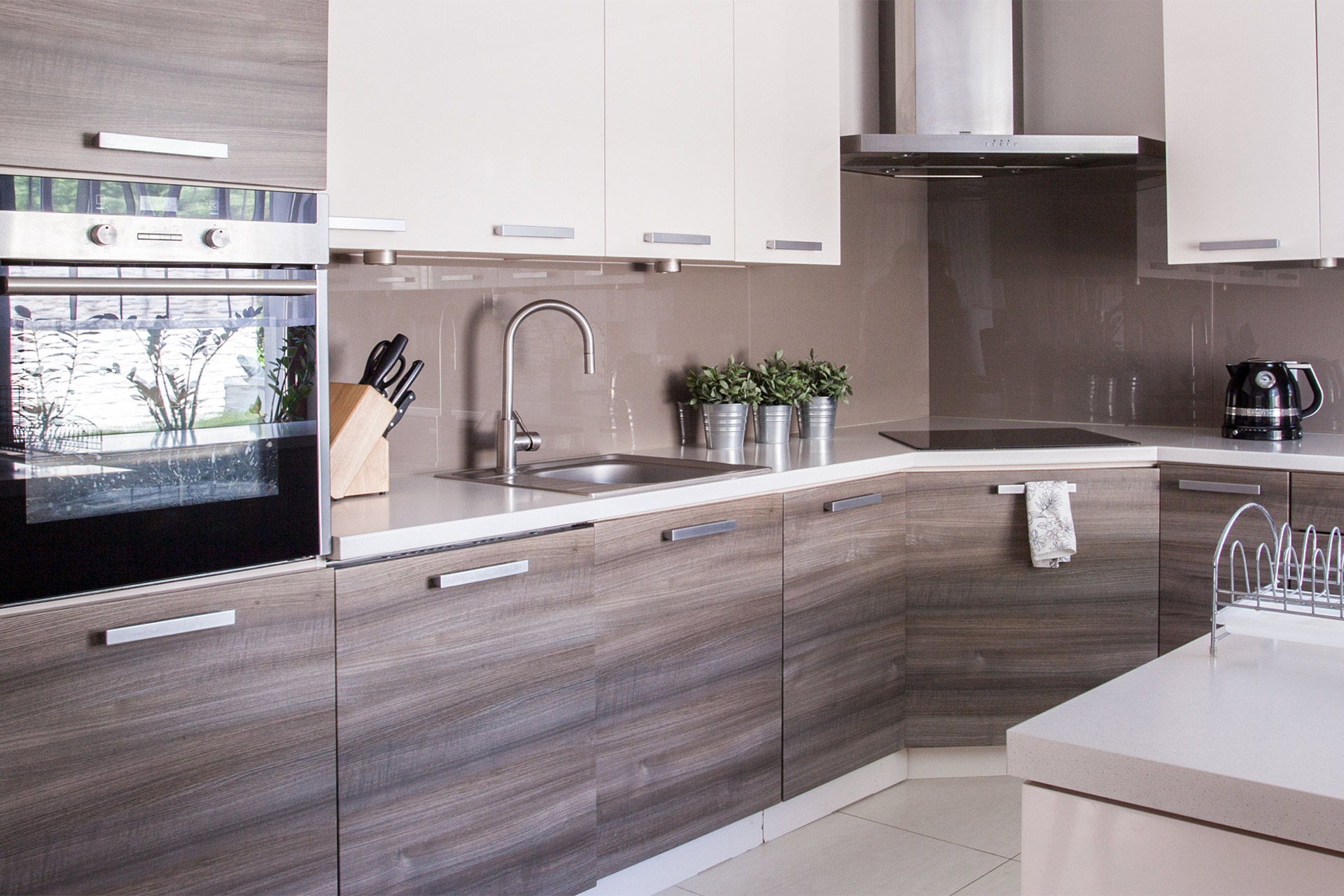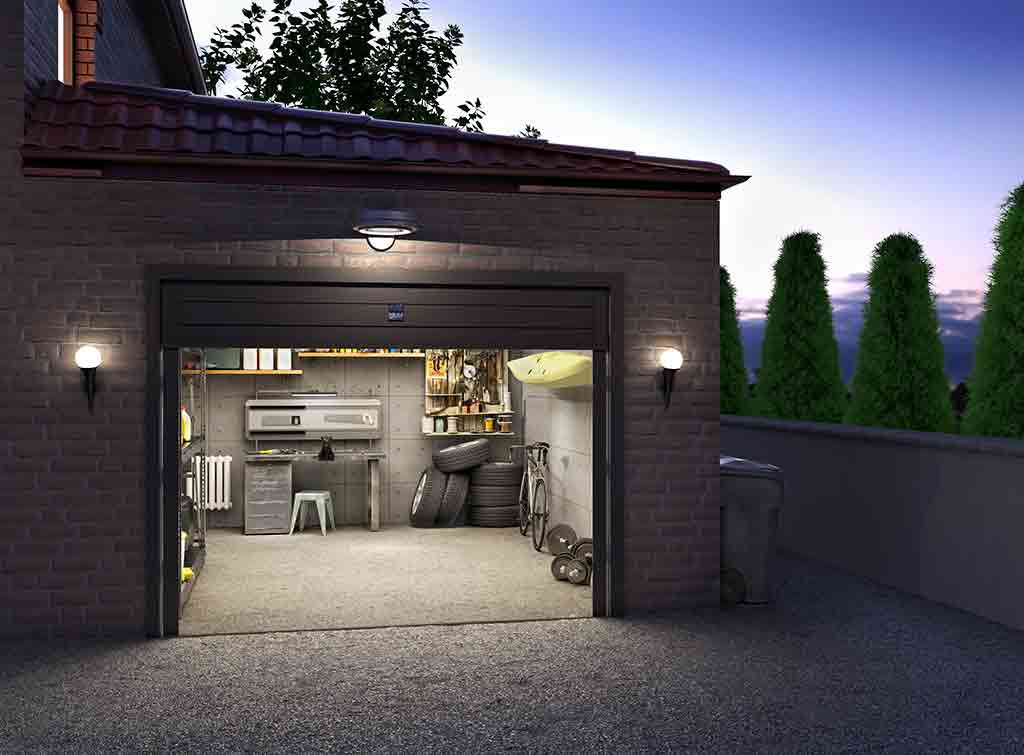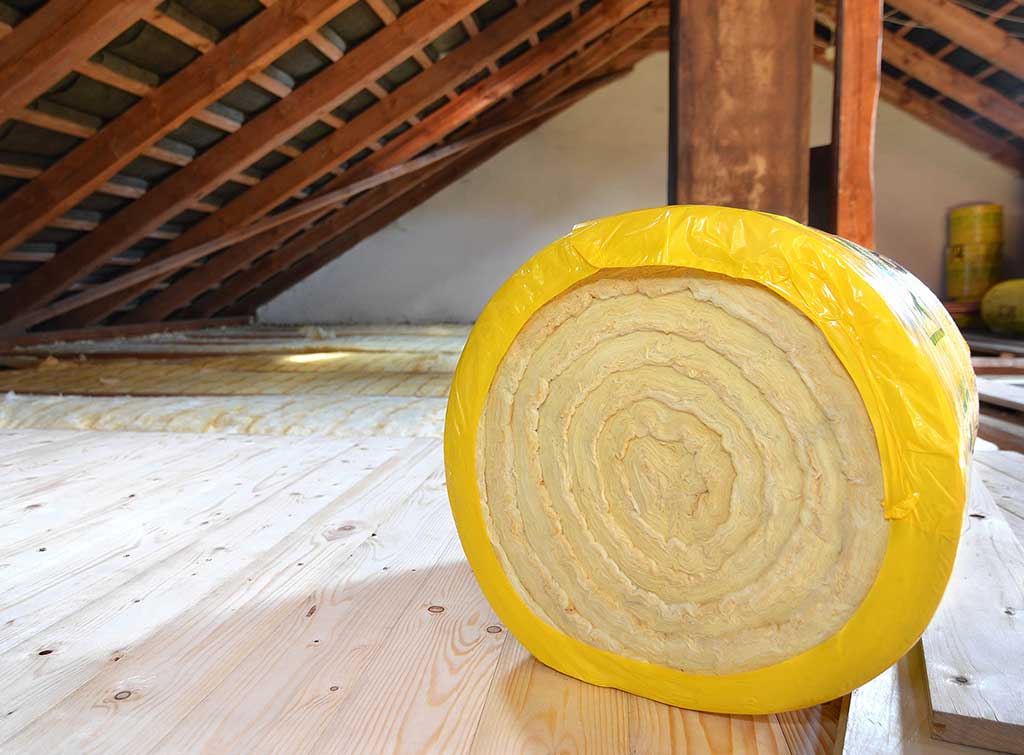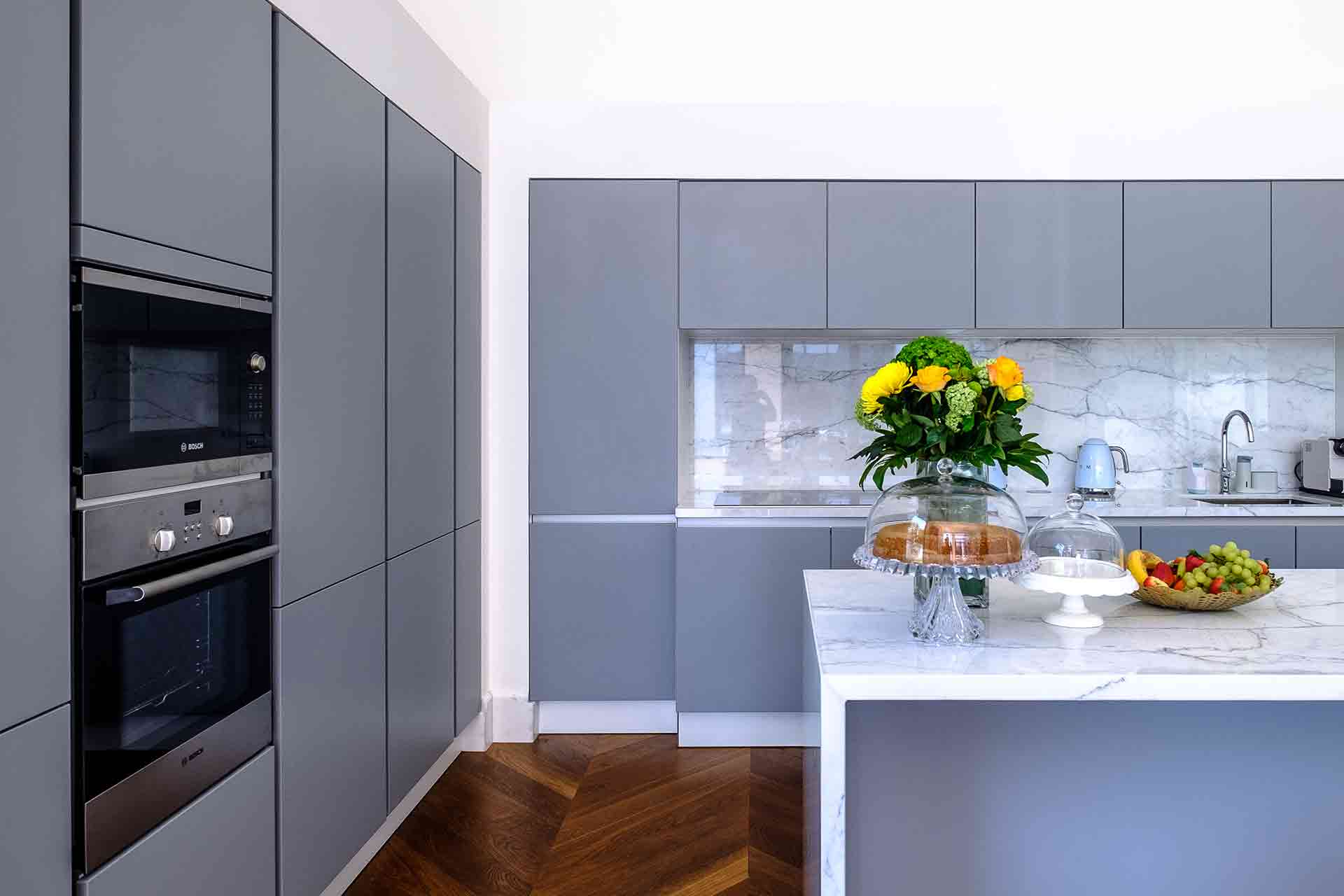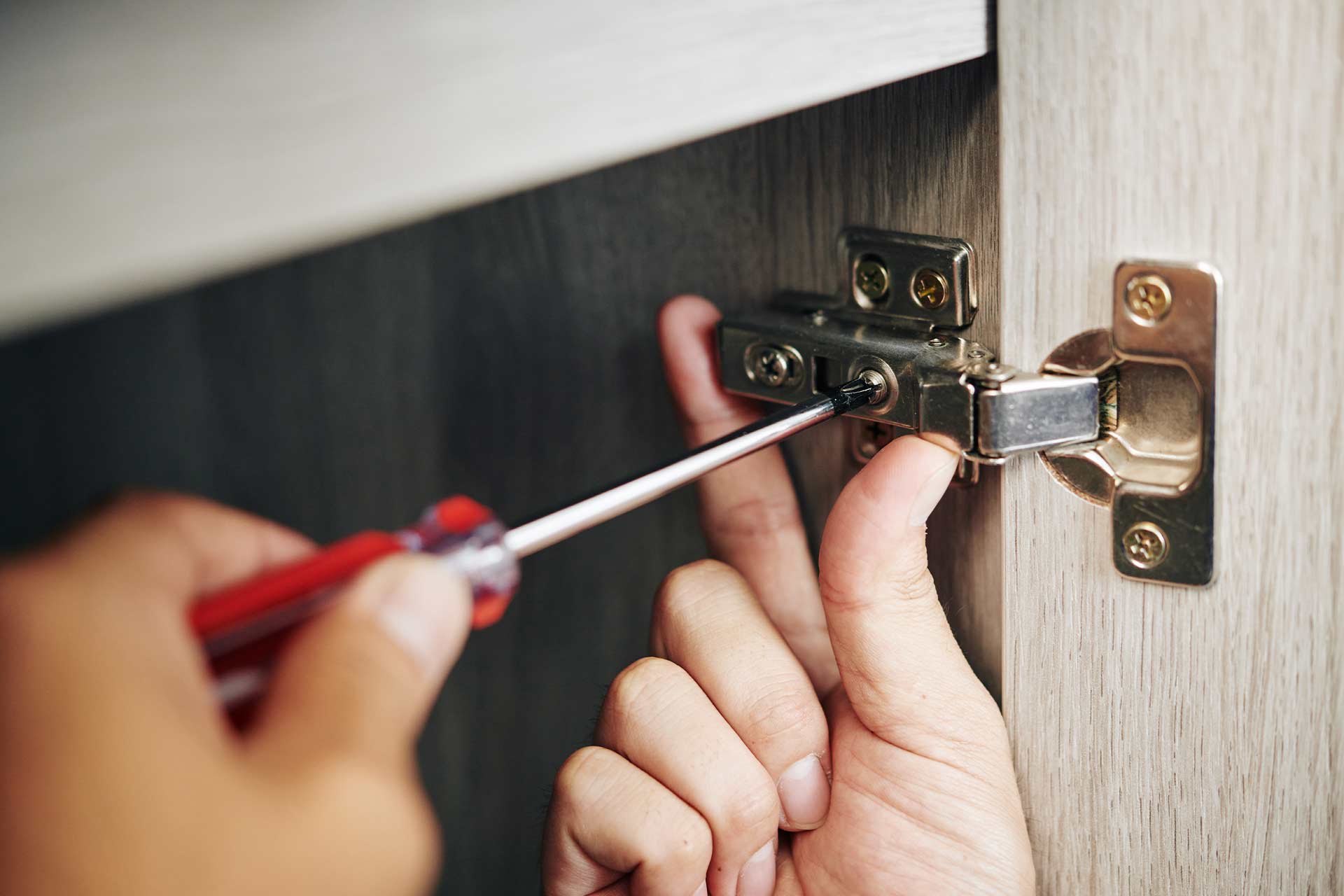Blog>Planning Guides>How to plan for kitchen door wrapping
Last updated: 15 July 2024
How to plan for kitchen door wrapping
Door wrapping is a cost-effective way to upgrade tired kitchen units without replacing all the cupboards and drawers. Here's how to plan for kitchen door wrapping for a perfect, long-lasting finish.
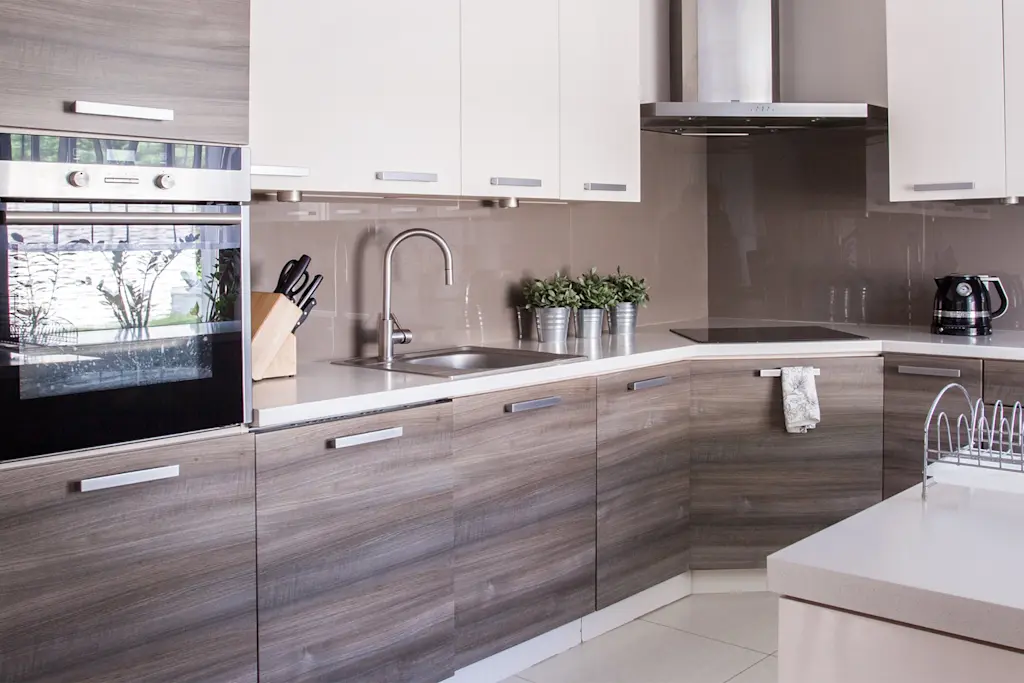
In this guide, we look at how to plan for kitchen door wrapping so you get a top-notch finish that will last.
Read on for your masterclass in kitchen door wrapping. Say hello to a fresh new kitchen look at a fraction of the price of a brand new kitchen.
What is kitchen door wrapping?
On average, we open and close our kitchen cupboards and drawers at least six times a day, which is why they tend to be the first furnishings to suffer from obvious signs of wear and tear.
When this happens, you might consider a quick upgrade or total refresh.
If you can't afford a complete refurbishment or replacement, then vinyl wrapping your kitchen is worth the investment.
The process of kitchen door wrapping involves applying a sheet of adhesive PVC vinyl to your existing units
It's a quick and easy way to change the look of your kitchen without the mess and expense of a complete remodelling job
You could consider kitchen door wrapping yourself - especially if you're a confident DIYer
Do bear in mind though, you'll need lots of patience and meticulous attention to detail to avoid creases and air bubbles in the finish
If you don't have the time or ability to do it yourself, we recommend hiring an expert kitchen door-wrapping company.
They will have all the skills and experience needed for a top-notch job. From measuring up correctly, preparing the doors and applying the vinyl for a professional finish.
To help you find an experienced tradesperson in your area, pop your postcode in the handy search bar below.
See the tradespeople we've checked and recommend for your job
Pros and cons of kitchen door wrapping
Kitchen door wrapping is becoming a popular way to refresh doors, drawers and cabinets.
Let's take a deep dive into the pros and cons of vinyl wrapping kitchen doors to help you make up your mind.
Pros
Design choice: Vinyl wraps are available in a huge selection of colours, effects, textures and finishes to personalise your kitchen
Tough finish: Vinyl is a durable material so will act as a strong protective layer that keeps out moisture, is easy to keep clean and won't need repainting
Easy maintenance: Cleaning vinyl-wrapped doors is relatively simple – wipe down with a damp cloth and mild detergent to remove dirt and stains
Long-lasting: If you choose good quality vinyl wraps and pay for professional installation, you can expect it to last from 5 to 10 years
Affordability: A cheaper and more cost-effective way to breathe new life into your kitchen
Sustainable: Vinyl wraps can add years to the lifespan of an old kitchen, making it a more eco-friendly alternative to throwing away your old doors and cabinets
Removable: If you ever get bored of the look, vinyl film is fully removable so you can easily change the style in the future
Versatile: Vinyl wrap will stick to most smooth and clean surfaces including PVC, laminate, MDF, and metals
Quick installation: Wrapping original kitchen doors takes just a day or two - with none of the noise, disruption or dust that comes with a complete kitchen refit
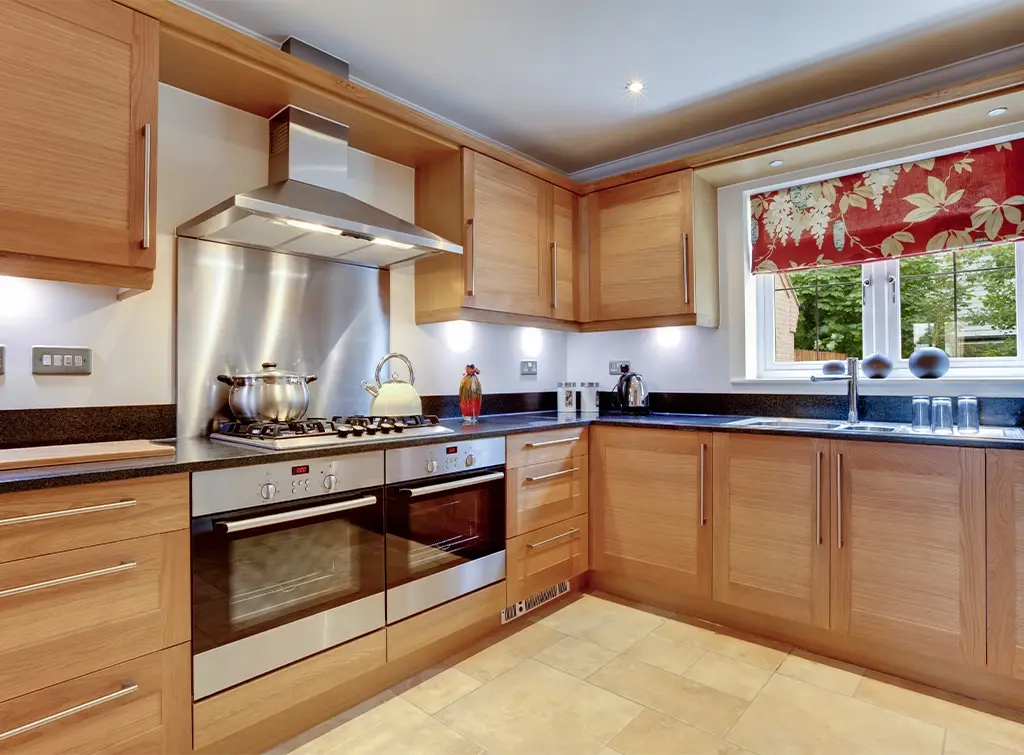
Cons
Less authentic look: Vinyl wrapping mimics the look of natural materials like wood and stone, but may not look exactly like real wood or other top-end materials
Prone to peeling: Over time, the adhesive used in vinyl wrapping may weaken, leading to peeling or bubbling at the edges
Tricky to repair: Repairing damaged vinyl wrapping is a challenge and often involves replacing the entire door
Heat sensitive: Vinyl can be sensitive to heat, which can cause the vinyl to warp or melt – if you're wrapping worktops always use a heatproof mat under hot pans
To get more advice, we recommend talking through all the options with a local company that specialises in kitchen refurbishments.
How to prep kitchen doors for wrapping
Hiring a specialist in vinyl wrapping will ensure a fresh new kitchen look you will adore for years!
However, to get ahead and save some money here are some steps you can take yourself...
Remove door handles and hinges
Measure surfaces accurately so you order the right amount of vinyl wrap (allow an extra 10cm on each side for an overlap)
Break down the job into categories e.g. large doors, small doors, drawers etc then work out how many doors you can fit in each metre of wrap
Make sure surfaces are dust-free and clean so the vinyl has the best chance to bond
Clean doors with warm soapy water or a degreasing cleaning product – avoid any cleaners that will leave a residue or shine
Give surfaces an extra wipe down with isopropyl alcohol or similar
For masses more advice on how to plan for kitchen renovation projects head to our useful blog.
See the tradespeople we've checked and recommend for your job
Step-by-step guide to wrapping kitchen doors
It's certainly possible to wrap kitchen doors yourself if you have the time, patience and right tools for the job.
However, we'd always advise hiring a professional who can wrap your kitchen doors to make them look like new!
If you decide to give it a try, follow our step-by-step guide to wrapping with confidence.
Tools for the job
Squeegee
Scalpel
Degreasing cleaning spray
Screwdriver
Cleaning cloth
Step by step
Remove kitchen doors, drawers and all fixings
Ensure all the surfaces are clean and free of grease
Measure your door and cut out the vinyl, leaving a couple of centimetres all the way around to fold over the edges for a neat finish
Slowly peel away the backing paper using a smoother or squeegee and press down on a corner of the door
Remove air bubbles as you work your way down the film
Make a diagonal cut at the corners and fold the overhang around the edges, cutting away the excess
For more details on the wrapping process, check out our guide below:
How to vinyl wrap kitchen doors
To give your kitchen doors the glow-up they deserve, read on for our expert advice.
Cost to wrap kitchen doors
The full cost of kitchen door wrapping depends on the materials, chosen finish, number of units and the full area size.
However, you can expect vinyl wrapping for a single door to cost around £150 plus labour.
On average, this means that a full kitchen wrapping project costs £2,750. That's why it's worth shopping around for a few quotes before agreeing to a job.
Labour costs for wrapping kitchen doors
Most kitchen wrapping projects will take around one to three days, so you're likely to pay the tradesperson's day rate for this type of work. This can sit anywhere between £150 - £200 per day.
For a more detailed breakdown of the costs, take a look at our guide to kitchen door wrapping costs.
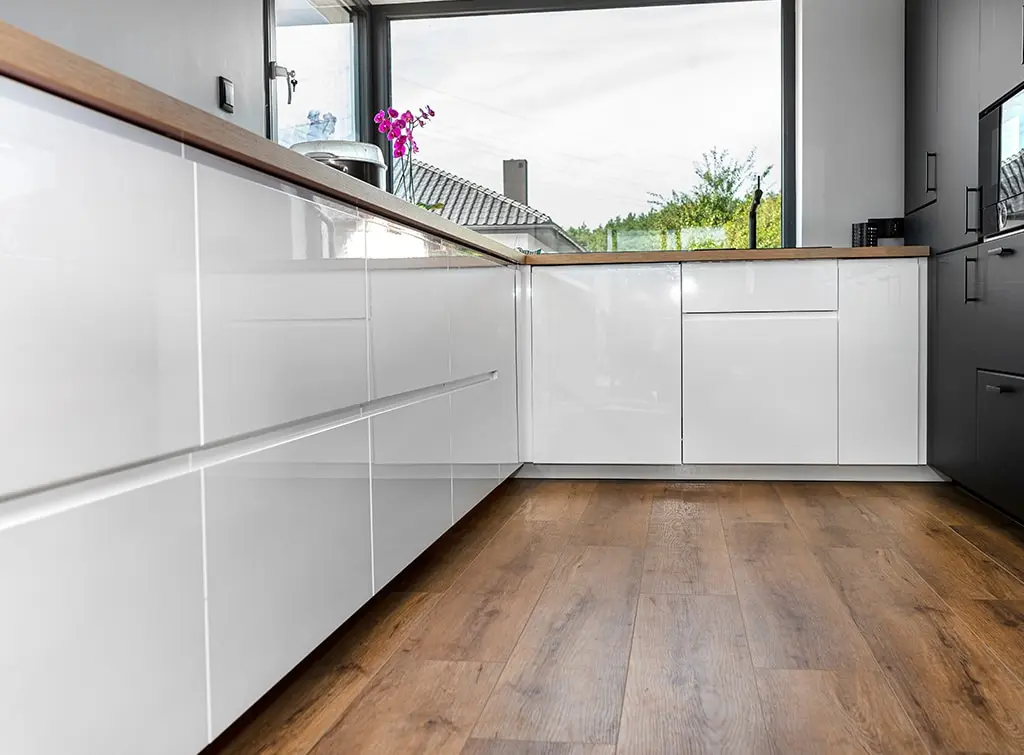
FAQs
Can I wrap a bevelled or Shaker-style kitchen door?
You can, but it won't be as straightforward as flat-fronted doors. For this type of job, we would highly recommend hiring a tradesperson experienced in refurbishing kitchens.
You don't want to run the risk of doing a poor job yourself and then paying out for costly mistakes.
What surfaces can kitchen wraps be applied to?
Wood, metal, flat glass/mirror, flat tiles, laminate, veneer, plastic, marble and primed MDF are all surfaces that will work with vinyl kitchen wraps.
Avoid using vinyl wraps on brick or stone walls, textured glass, dirty, dusty or damp surfaces, wet areas, floors, areas in direct heat or unprimed MDF.
How do I clean vinyl wrap doors?
Clean vinyl using a standard antibacterial cleaner or simply water. Don’t use any chemicals or strong cleaners and to avoid scratches, use only soft clothes.
Ready to start your kitchen door wrapping project? Enter your postcode in the search bar below to browse recommended experts in your area:
See the tradespeople we've checked and recommend for your job
More Planning Guides
More Kitchen Refurbishments Articles
See the tradespeople we've checked and recommend for your job
